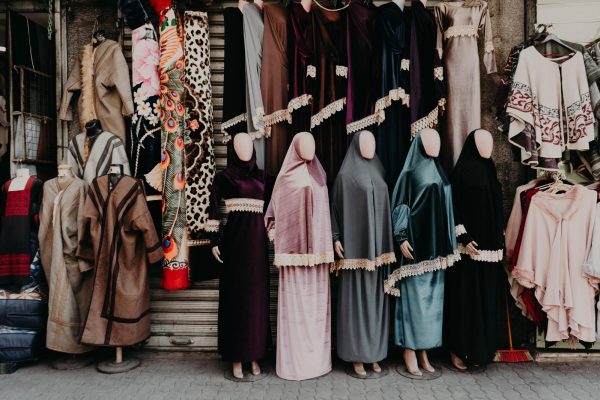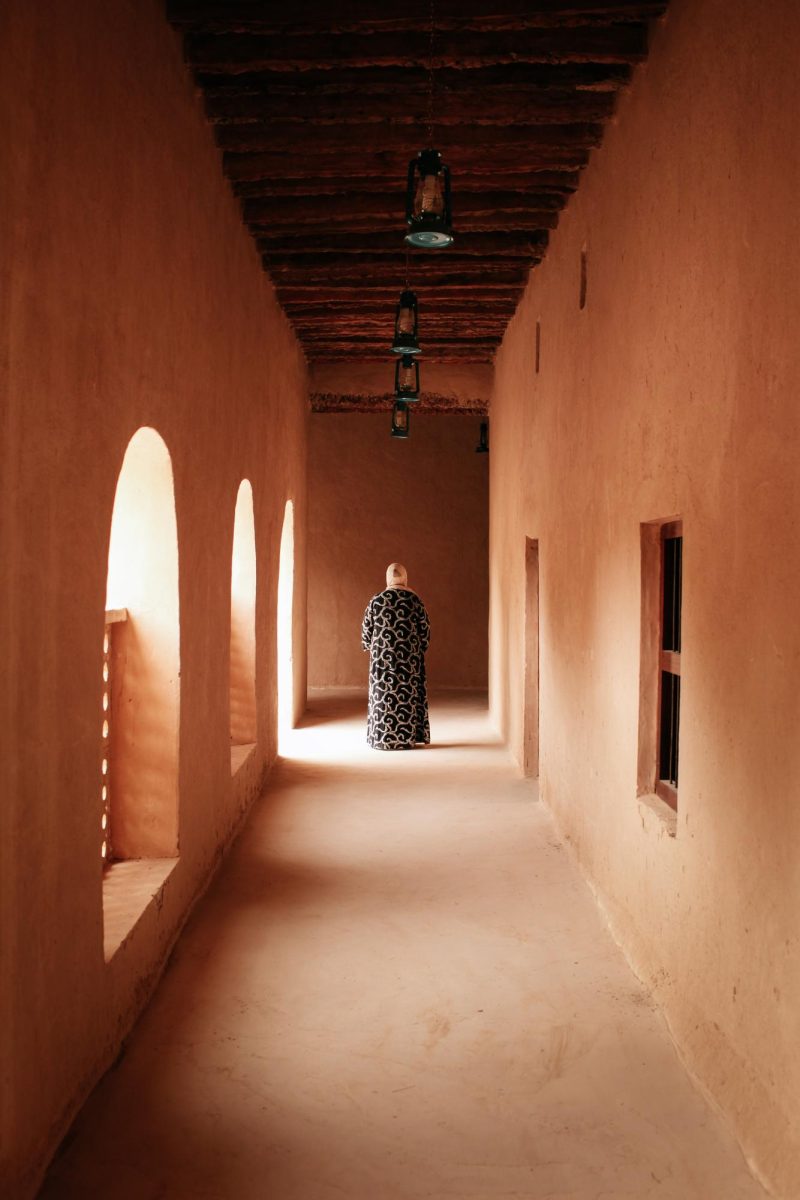Article IV of The Declaration of the Rights of Man and of the Citizen states that “liberty consists in being able to do anything that does not harm others,” and “thus, the exercise of the natural rights of every man has no bounds other than those that ensure to the other members of society the enjoyment of these same rights.”
Therefore, in France, one should be able to enjoy and exercise their freedoms, so long as they bring no harm to another individual.
And that begs the question at hand today: where is the harm in wearing an abaya?
The French Abaya Ban
The abaya is a loose-fitting robe worn by some Muslim women, representing a variety of meanings to those who wear them. Some wear the abaya for the sake of modesty, while others wear the abaya as a form of self-expression and fashion.
In late August 2023, before the start of the new school year, Gabriel Attal, the newly elected education minister of France, announced the institution of a statewide abaya ban. The ban would disallow the abaya from being worn in state-run schools.
His explanation? Secularism. “When you enter a classroom, you must not be able to identify the religion of the students by looking at them,” said Attal in an interview with TF1.
French President Emmanuel Macron backed up Attal’s claims after his visit to a school in Southern France. “Schools in our country are secular, free, and compulsory … therefore, religious symbols of any kind have no place in them,” said Macron.
This ban extends far beyond the student body — teachers and school leadership will also be included as a part of the ban. Macron referred to the enforcement of the ban as “uncompromising.”
Shortly after the ban was put into effect, it received immense backlash from French constituents, particularly the minority Muslim community. Thousands of female students have shown their dissent by attending school wearing abayas or robe-like clothing, directing years worth of frustration towards the French government. French schools have thus responded by sending students home and disciplinary action.
A Love for Laïcité
The French government is infamous for their indirect forms of religious discrimination through the laïcité (secularist) ideology. Laïcité bridges off of secularism, which prioritizes separation of church and state. However, what makes the ideology so distinct from secularism is the strictness of its enforcement within French society.
Laïcité is implemented in secular spheres, which tend to be governmentally-run areas such as schools and courtrooms. At first, laïcité may have seemed like a good, even great, idea considering how it would protect citizens from being discriminated against within their schools and other institutions because of their religion.
However, the reality of laïcité is much darker.
Over the past twenty years, the French government has doubled down on the strict measures regarding laïcité, especially when it comes to Muslim women and their clothing. It is now being used as a tactic to remove all religious expressions in all spheres of society, with every restriction placed.
With regards to banning the abaya, many pointed out the gray area that exists. The French Council of Muslim Faith released a joint statement on their website and said, “Unless all long dresses are banned altogether in schools, for students and teachers – regardless of their faith – it will be impossible to apply a measure specifically targeting the abaya without falling into the trap of discrimination and arbitrariness.”
However, French governmental officials, such as Olivier Veran, the current government spokesman, argued that the abaya was “obviously” a clothing with religious connotations, failing to consider garments like the kimono that can be easily mistaken for the abaya.
Instead, Veran believed that the act of wearing the abaya was an attempt to “proselytize,” or convert, others into Islam. There is a history of paranoia within the French government regarding the infiltration of Islam into French society, which has manifested itself in bans throughout the decades.
A History of French Governmental Control over Muslim Women’s Clothing
In 2004, French officials instituted a ban that eliminated religious symbols from schools. Among them were headscarves, yarmulkes, and crosses. A ban that was put in place in order to generate equality between all students ostracized and created an uncomfortable atmosphere in a supposedly safe space. The ban had a multitude of implications especially for hijabi students who had to remove their hijabs right before they entered school. At times, if they refused to do so, they were forced from the premises and told to go back home.
The restrictions did not end there. In 2010, France prohibited niqabs, veils that cover the face, from being worn in public spaces, directly targeting Muslim women who are niqabis. Again, their only explanation was in the name of secularism, upholding the virtues and values of laïcité. However, the truth became clear during the Coronavirus pandemic when France mandated masks for all, but refused to allow Muslim women the right to wear niqabs.
By June of 2022, the French government struck again with the burkini ban, a modest swimwear worn by Muslim women, with the French Council of State ruling that allowing the usage of the “burkini would undermine the equal treatment of users, so the neutrality of the public service is compromised.”
Most recently, aside from the abaya ban, it was announced that France will be hosting its first Olympics in nearly 100 years. With this came France’s decision to prevent its female athletes from wearing the hijab.
Muslim women’s ability to express themselves through their attire continues to shrink with every ban written into law. Each of these bans makes it more difficult, even impossible, for them to pursue beneficial opportunities because there are parts of them that are not accepted, making them less willing to play a part.
Even the United Nations Human Rights Committee has criticized the bans, noting the detrimental effects that it holds upon Muslim women in France and their ability to actively participate in society.
Other countries across Europe have seen a spike in Islamophobia attributed to anti-Muslim sentiments and have followed France’s lead on controlling the rights to Muslim women and the clothing they choose to wear.
Israth Tayiba ’26, a member of Bronx Science’s Muslim Student Association, found the bans and the hatred towards Muslim people, particularly women, to be draining. “It is already hard enough being a woman,” she said, “This takes it another step further.”
The Right to Autonomy
The prohibition of religious garments, such as the hijab and abaya, is about much more than just pieces of clothing. It can be boiled down to a simple violation of human rights.
The idea was never to provide Muslim women more influence over themselves but rather exerting control over what women wear, their appearances, and the concept of “liberating” women. Europe has long considered Muslim women to be ‘trapped’ and in need of being saved. They never seem to consider that Muslim women have the choice to wear and express themselves in what they please, which includes modest clothing, such as the abaya.
The abaya is a component of a Muslim woman’s identity. Whether she chooses to wear the abaya or does not should not concern anyone but her.
And that is the root of the issue — choice.

When it comes to Muslim women, the right to express oneself is not advocated enough. Instead, it is entirely disregarded when women’s rights are discussed.
There has been much discussion surrounding the right to choose, including the right to abortion and the right to choose whether or not to wear the hijab in countries like the United States and Iran. However, in the same breath, these conversations must also include the countless Muslim women in European countries, specifically France, who are forced to shed their identity and are denied their basic human right to give voice to their needs without facing instantaneous backlash.
As a Muslim woman who holds the hijab and abaya as pieces of my identity, I cannot imagine a world so cruel that I would be forced to remove both upon entering school. I choose to cover myself in this way and it should never be seen as a crime.
I was always told that school was intended to be a safe space for everyone and I am disheartened by what school may mean for the female Muslim students in France. It amounts to a violation of self, girls being forced to uncover what they do not willingly show to others. It becomes a burden to continue to receive an education where they are not accepted.
When I see Muslim women and their right to expression along with their right to choice crumbling before our eyes in countries that are supposedly proud supporters of such rights, it elicits a fear of how this may manifest itself further in the years to come.
But I have faith, with our youth, who are so fervent in their dissent, leading protests all throughout France and worldwide, that perhaps change can be attainable. Perhaps the right to expression for Muslim women may stand strong, courageous like the women who wear them.
When I see Muslim women and their right to expression along with their right to choice crumbling before our eyes in countries that are supposedly proud supporters of such rights, it elicits a fear of how this may manifest itself further in the years to come.

